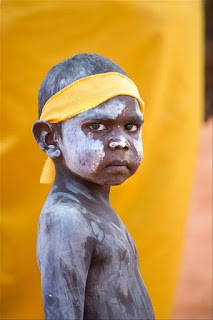Book review: The Choke by Sophie Laguna

The Choke tells the story of a young girl raised by her war-ravaged grandfather in a beat-up house near the fictional Victorian town of Nullabri on the banks of the Murray River. Nullabri may well be located across the water from fictional Bellington and Riversend from Chris Hammer's Scrubland as we find ourselves in another rendition of dystopian rural Australia where the river (or lack of) is a silent presence. Author Sophie Laguna has again given her child heroine Justine and the other young characters a warmth and vulnerability so easily observable in children and it is part of the growing tension of the book as to how this will be ripped apart by the mostly dysfunctional adults in their lives. Or by the eroding process of simply growing up in poverty and ignorance. There is something dangerously criminal about Justine's father who is mostly absent yet longed for by Justine and her step-brothers. The depiction of his return, his dismantling of his sons' fragile





